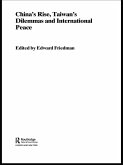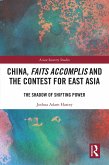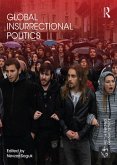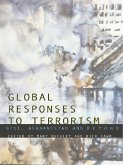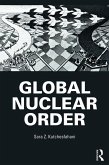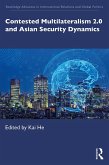The events of September 11 have been a significant watershed in the emerging global order. The nature and consequences of this changing global order, however, remain unclear.
This book argues that this emerging order is as much the result of issues relating to the evolving methods and forms of governance, as of the new role and position of the United States in the world system. Jayasuriya develops an innovative framework extending that extends the work of theorists such as Carl Schmitt, Franz Neumann and Herbert Marcuse to explore the reconstitution of the post-war global liberal order. He analyses the nexus between domestic political and constitutional structures and the global order, and examines how the post-war framework of international liberalism is crumbling under the economic and political pressures fermented in the post cold war period. As well as looking at the implications of 9/11 for the global order, the author:
* Relates the events of 9/11 to the deep transformations of the post-war global order.
* Emphasizes the importance of the rise of the new regulatory state.
* Examines the new politics of fear in liberal democracies including the US, UK and Australia .
* Studies the appropriation of the "language of the left" by conservative forces.
* Notes the profoundly illiberal outcomes of actions undertaken in the name of liberalism.
This unique and timely study will interest students and researchers of international political economy, globalization, and international political theory.
This book argues that this emerging order is as much the result of issues relating to the evolving methods and forms of governance, as of the new role and position of the United States in the world system. Jayasuriya develops an innovative framework extending that extends the work of theorists such as Carl Schmitt, Franz Neumann and Herbert Marcuse to explore the reconstitution of the post-war global liberal order. He analyses the nexus between domestic political and constitutional structures and the global order, and examines how the post-war framework of international liberalism is crumbling under the economic and political pressures fermented in the post cold war period. As well as looking at the implications of 9/11 for the global order, the author:
* Relates the events of 9/11 to the deep transformations of the post-war global order.
* Emphasizes the importance of the rise of the new regulatory state.
* Examines the new politics of fear in liberal democracies including the US, UK and Australia .
* Studies the appropriation of the "language of the left" by conservative forces.
* Notes the profoundly illiberal outcomes of actions undertaken in the name of liberalism.
This unique and timely study will interest students and researchers of international political economy, globalization, and international political theory.
Dieser Download kann aus rechtlichen Gründen nur mit Rechnungsadresse in A, B, BG, CY, CZ, D, DK, EW, E, FIN, F, GR, HR, H, IRL, I, LT, L, LR, M, NL, PL, P, R, S, SLO, SK ausgeliefert werden.



